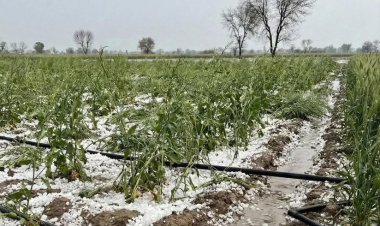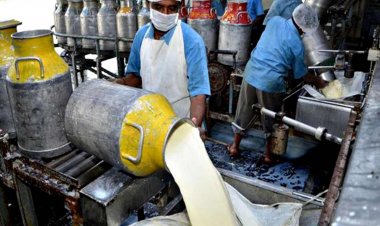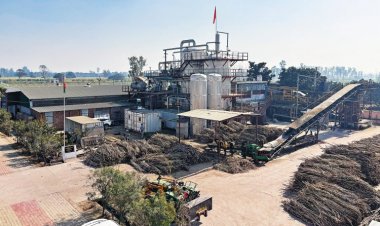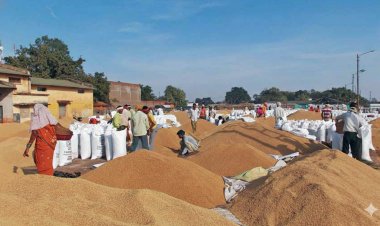Indian 'thali' becomes dearer: CRISIL
A typical Indian thali comprising roti, dal, rice, curd and vegetables has become dearer. Its cost touched a five-month high in June, according to a CRISIL analysis. With the price of essentials such as tomatoes, ginger and green chillies skyrocketing, the analysis shows that the cost a thali, vegetarian or non-vegetarian, surged in June on a month-on-month basis but declined 5 per cent on a year-on-year basis.
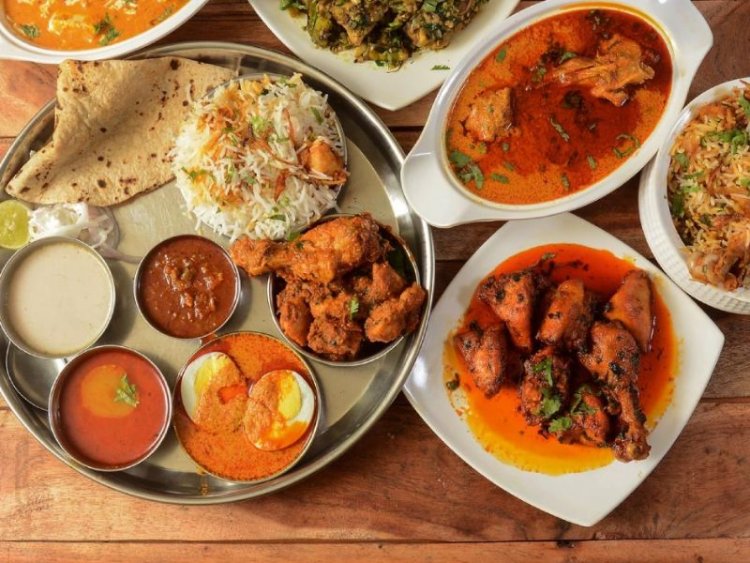
A typical Indian thali comprising roti, dal, rice, curd and vegetables has become dearer. Its cost touched a five-month high in June, according to a CRISIL analysis. With the price of essentials such as tomatoes, ginger and green chillies skyrocketing, the analysis shows that the cost a thali, vegetarian or non-vegetarian, surged in June on a month-on-month basis but declined 5 per cent on a year-on-year basis.
The rating agency said that the cost of a typical vegetarian thali in the Indian household rose to Rs 26.3 in June from Rs 25.1 in May, which is the highest in five months. Likewise, the cost of a typical non-vegetarian plate also surged to a seven-month high of Rs 60 in June from Rs 59.3 in May. The estimates are based on the rise in prices of the components of a typical Indian thali such as roti, vegetables, rice, dal, curd, and salad. The vegetables include onion, tomato and potato prices. A non-vegetarian thali factors in the price of broiler chicken prices instead of dal.
With tomato prices on the boil, this may not come as a surprise to most consumers in India. However, tomato is not the only component pushing up the price of thali. Dal and wheat prices have also witnessed some surge over the past month, with tur dal prices rising 3 per cent in June, according to the report. While the month-on-month difference in the prices of a vegetarian thali was Rs 1.2, the price of the non-vegetarian thali rose by Rs 0.7 during the same period.
A typical vegetarian thali weighs 600-650 gm and costs Rs 25.3 as of June, according to CRISIL, which factored in the cost of inputs across cities in the North, South, West, and East. Here is the cost of components with their weightage in percentage terms:
*The cost of three rotis (16.9 per cent) was Rs 4.4
*Whole vegetables (25.2 per cent) cost Rs 6.6.
*Rice (12.1 per cent) was worth Rs 3.2
*Pulses (10.6 per cent), including edible oil, cost Rs 2.8
*Curd (15.3 per cent) was at Rs 4
*Fuel, condiments and salad (20 per cent) cost Rs 5.3
Towards the end of June, the price of tomatoes surged as high as Rs 120 per kg. However, on a year-on-year basis, the price of a vegetarian thali declined 5 per cent, though the prices of inputs such as dal, wheat flour, and rice registered a year-on-year rise. While flour prices were up 9 per cent, rice turned 12 per cent costlier during the period.
Similarly, the price of a non-vegetarian thali weighing Rs 680-730 gm surged to Rs 60 in June. Here is the price of components with their weightage:
*Three rotis (7.4 per cent) at Rs 4.4
*Vegetable (with oil, 11.1 per cent) at Rs 6.6
*Rice (5.3 per cent) at Rs 3.2
*Broiler chicken (with oil, 59.3 per cent) at Rs 35.5
*Curd (6.7 per cent) at Rs 4
*Fuel, spices and salad (10.3 per cent) at Rs 6.2
These prices do not indicate the retail prices of goods and are only indicative of the price of components in a thali. Though the price of a non-vegetarian thali was up from June, it was down 5 per cent on a year-on-year basis. Broiler prices declined 4 per cent y-o-y.



 Join the RuralVoice whatsapp group
Join the RuralVoice whatsapp group

















